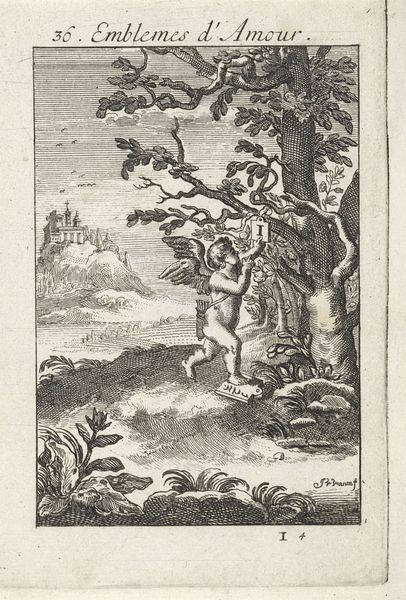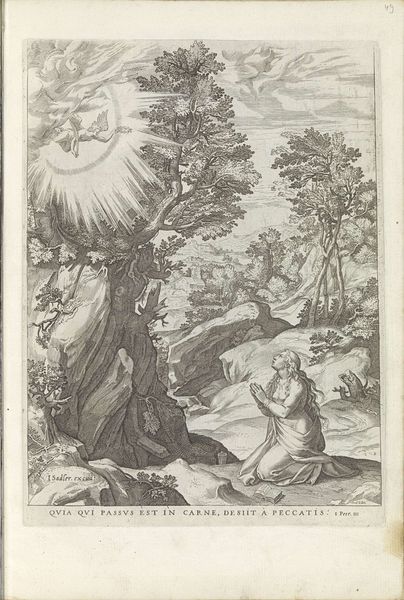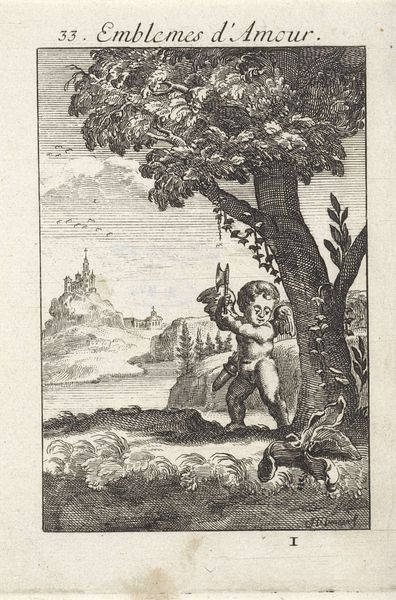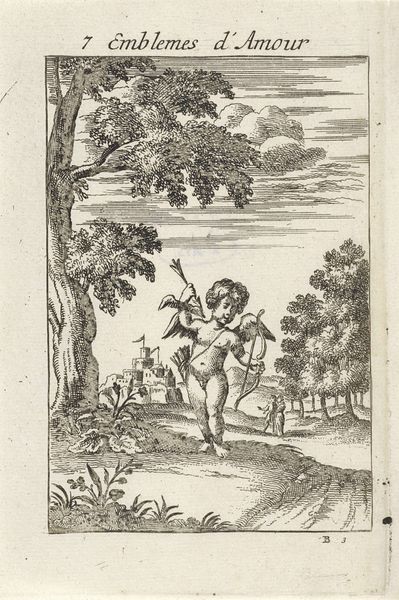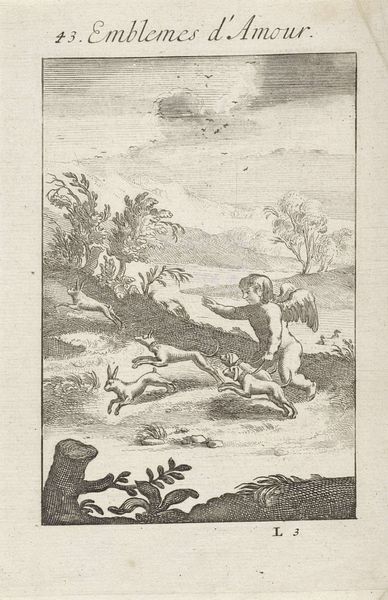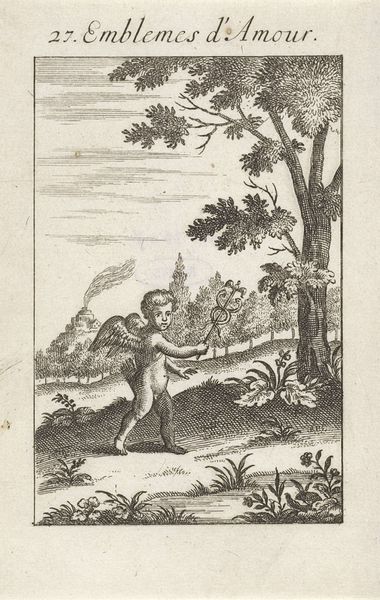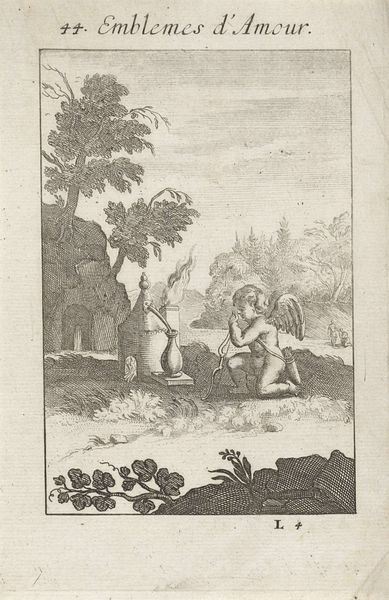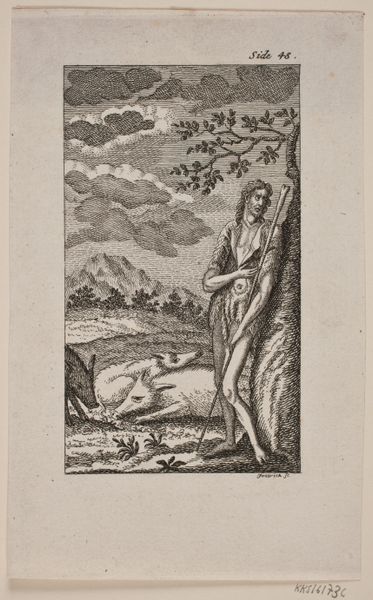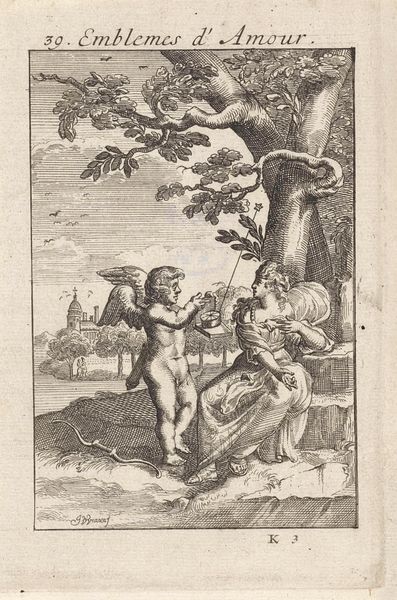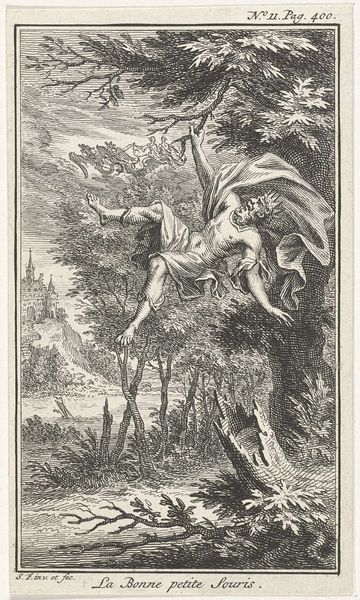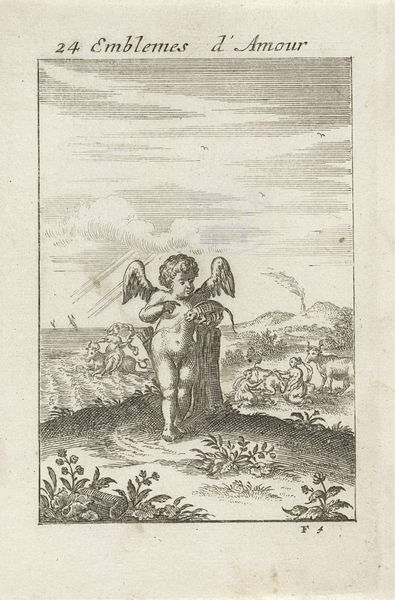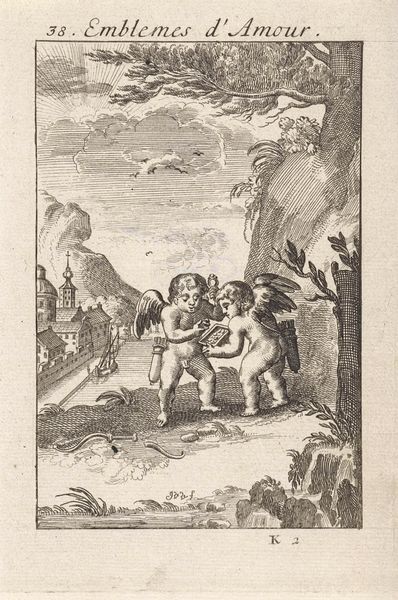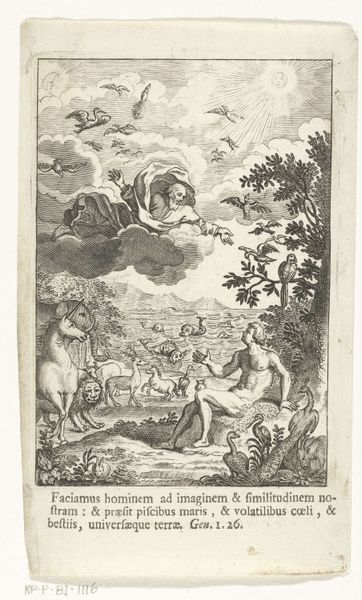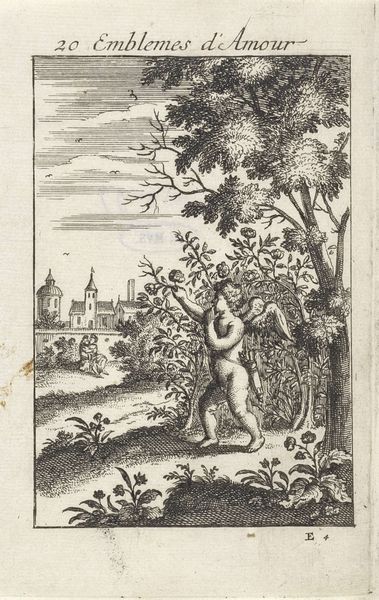
engraving
#
allegory
#
baroque
#
old engraving style
#
landscape
#
figuration
#
line
#
engraving
Dimensions: height 145 mm, width 95 mm
Copyright: Rijks Museum: Open Domain
Curator: This is Jan van Vianen's "Amor bij een boom die wind vangt," created in 1686. The piece, housed here at the Rijksmuseum, is an engraving. Editor: My initial reaction is a feeling of slightly awkward, forced sentimentality. The cupid seems to be struggling with this windswept tree. Curator: It's important to note this piece functions as part of a broader emblem book, tapping into the allegorical traditions popular at the time. Love, represented by Amor or Cupid, interacts with the wind-battered tree. Editor: The tree almost becomes a symbol for societal expectations around love, maybe the pressures and trials faced, while those cherubic figures blowing on the tree—are they social forces, parental expectations? They seem determined to shape it. The little Amor struggling to hold the tree hints at the challenges and even burdens of maintaining a love under duress. Curator: Indeed, placing this work within the historical context of Dutch emblem books is vital. It allows us to explore the complex iconography that underpinned social and moral ideals of the time, revealing how love was being publicly discussed and constructed. The engraving is a reproduction. Van Vianen was part of a cultural movement, using engraving to disseminate and reproduce printed images in the early printing press. Editor: Seeing the engraving technique brings forward the notion of dissemination as well. To what degree has the meaning, and original emotion that was present, become diluted and changed within different classes of society as engravings such as this circulate? Curator: Precisely. Furthermore, viewing it now through intersectional lenses lets us ponder how the artist's conceptualization and visual representation of love intersect with historical norms of gender, class, and even the colonial gaze of the Dutch Golden Age. Does Amor represent an idealized, exclusive, and ultimately fragile notion of love accessible to only a certain few? Editor: Ultimately, the tension in this relatively small work is fascinating. Curator: Yes, it sparks a crucial dialogue. Let us turn to our next object.
Comments
No comments
Be the first to comment and join the conversation on the ultimate creative platform.
